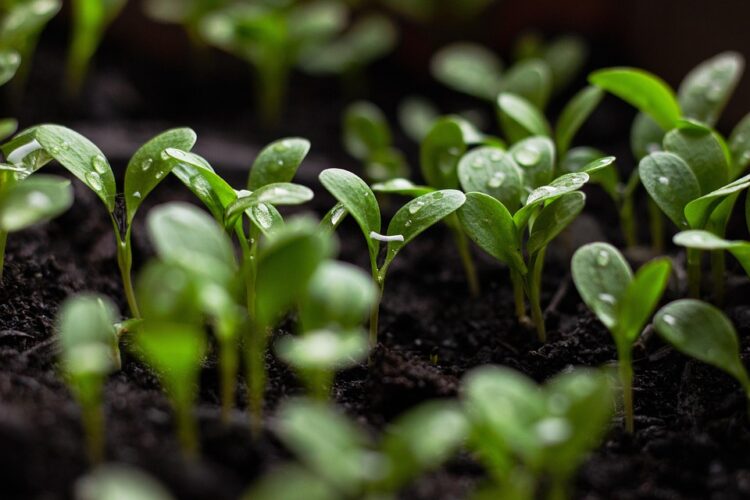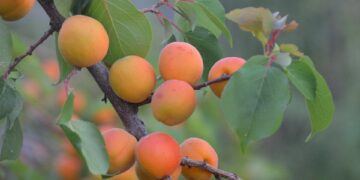[ad_1]
Harvesting a Greener Future: The Impact of Sustainable Farming Practices
Sustainable farming practices have become increasingly important in today’s world as we strive to protect our environment and ensure food security for future generations. By implementing sustainable farming methods, farmers can reduce their environmental impact, improve soil health, and create a more resilient food system. In this article, we will explore the impact of sustainable farming practices and how they can help us harvest a greener future.
What is Sustainable Farming?
Sustainable farming, also known as regenerative agriculture, is a holistic approach to farming that focuses on preserving the health of the land, water, and air. This means using practices that promote soil health, reduce chemical inputs, and protect biodiversity. Sustainable farmers work with nature rather than against it, using techniques such as crop rotation, cover cropping, and integrated pest management to maintain a healthy ecosystem on their farms.
The Benefits of Sustainable Farming
There are many benefits to practicing sustainable farming. One of the most important is the preservation of soil health. Healthy soil is essential for producing nutritious crops and sequestering carbon from the atmosphere. Sustainable farming practices such as minimal tillage and cover cropping help to build soil organic matter, improve soil structure, and reduce erosion.
Another benefit of sustainable farming is the reduction of chemical inputs. Conventional agriculture relies heavily on synthetic fertilizers and pesticides, which can have negative impacts on human health and the environment. By using natural methods to control pests and improve soil fertility, sustainable farmers can reduce their reliance on these harmful chemicals.
Sustainable farming also helps to protect biodiversity. By creating diverse habitats on their farms, farmers can support a wide range of plant and animal species. This not only benefits the ecosystem but also helps to improve crop resilience and reduce the risk of pest outbreaks.
Examples of Sustainable Farming Practices
There are many different sustainable farming practices that farmers can implement on their farms. Some examples include:
- Crop rotation: Rotating crops helps to break pest and disease cycles, improve soil fertility, and reduce the need for chemical inputs.
- Cover cropping: Planting cover crops helps to protect soil from erosion, improve soil health, and provide habitat for beneficial insects.
- Integrated pest management: This approach uses a combination of biological, cultural, and physical methods to control pests, reducing the need for chemical pesticides.
- Agroforestry: Integrating trees and shrubs into agricultural landscapes can help to improve soil health, provide shade for livestock, and sequester carbon from the atmosphere.
The Impact of Sustainable Farming on Food Security
Sustainable farming practices play a crucial role in ensuring food security for future generations. By preserving soil health, reducing chemical inputs, and protecting biodiversity, sustainable farmers can produce nutritious food in a way that is environmentally sustainable. This is particularly important as the world’s population continues to grow and climate change threatens to disrupt traditional farming practices.
By adopting sustainable farming methods, farmers can help to build a more resilient food system that is better able to withstand the challenges of a changing climate. Sustainable farming practices not only benefit the environment but also help to ensure that nutritious food is available for all members of society.
Challenges and Opportunities for Sustainable Farming
While sustainable farming offers many benefits, there are also challenges that farmers face when transitioning to more sustainable practices. One of the biggest challenges is the upfront costs associated with implementing new techniques and technologies. In some cases, farmers may need to invest in new equipment or infrastructure in order to adopt sustainable farming practices.
Another challenge is the lack of knowledge and support for sustainable farming methods. Many farmers may not be aware of the benefits of sustainable agriculture or how to implement these practices on their own farms. Providing education and resources to farmers can help to overcome this barrier and encourage more widespread adoption of sustainable farming practices.
Despite these challenges, there are also many opportunities for sustainable farming to thrive. Consumers are increasingly interested in where their food comes from and how it is produced, creating a growing market for sustainably grown products. Governments and organizations are also recognizing the importance of sustainable agriculture and providing support for farmers who want to transition to more sustainable practices.
Conclusion
Sustainable farming practices have the potential to transform our food system and create a more sustainable future for all. By preserving soil health, reducing chemical inputs, and protecting biodiversity, sustainable farmers can produce nutritious food in a way that is environmentally sustainable. While there are challenges to overcome, the benefits of sustainable farming far outweigh the costs. By working together to support sustainable agriculture, we can harvest a greener future for generations to come.
It is clear that sustainable farming practices are essential for protecting our environment, ensuring food security, and building a more resilient food system. By implementing sustainable farming methods, farmers can reduce their environmental impact, improve soil health, and create a more sustainable future for all. With the right support and resources, sustainable farming has the potential to transform our food system and create a greener future for generations to come.
[ad_2]












